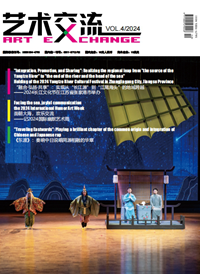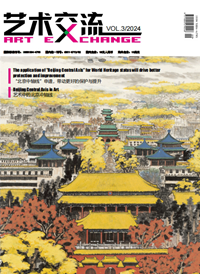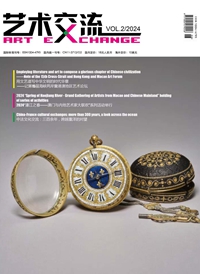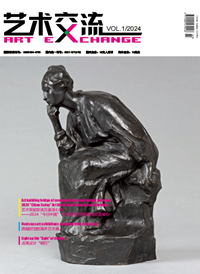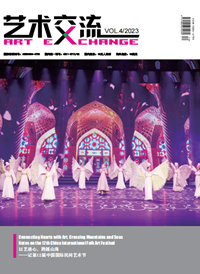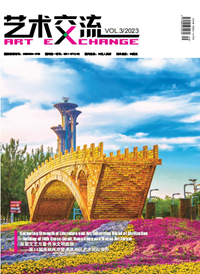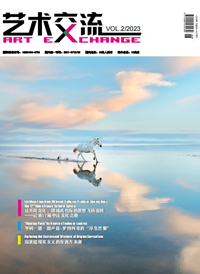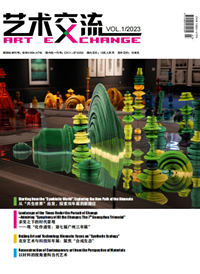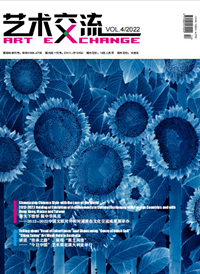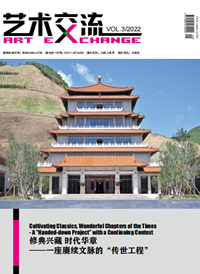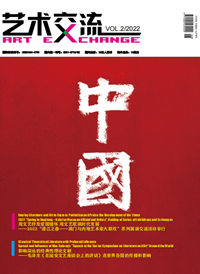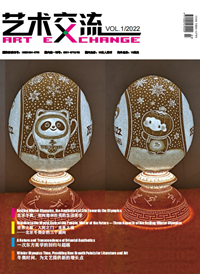

While Enjoying Beautiful Landscape, Artists from All over the World Still Exchanged with Each Other Photo by Meng Xiangning
An excellent artwork can influence the whole life of an individual and it can change his or her understanding of a country and a nation as well. At this festival, 300 artists of 14 art troupes from different countries of five continents have brought programs that fully manifest their unique characteristics of different national or regional cultures. Originating from actual life, the folk dances and songs, to some extent, show some features of people of related countries, such as the liveliness of American dances, the elegance of Spanish dances, the heroism of Mongolian dances and the passion of African dances. Artists’ devotion and enjoyment of art enable the audiences to feel their sincere love for their own national arts. During the CIFAF, they have become the possessors, transmitters and indulgers of their own folk arts, and in the meanwhile, they have touched the audiences with their lively interpretation and artistic representation and passed on their own pleasure and happiness to the audiences as well.
Arts can gather people of different nations and colors to communicate and exchange with each other while sharing the beauty of arts and life together. At one stop of touring performance in Yichang city, American Dancing Troupe had six performances in succession and the dancers changed their performing clothes breathtakingly in order to save time. The audiences cheered for them with overwhelming warmth. On the Walking Street of Yichang, a 74-year-old grandpa danced to the musical tune of Pakistan Dancing Troupe, while Pakistan dancers willingly offered to learn Chinese Fan Dances from the local folk troupe. They learned in a meticulous way. At Beijing Foreign Studies University, another stop of touring performance, when Australian Rock Band sang one of the most popular songs in China, “The Most Dazzling National Style ”, the audiences sang together as the interactive response. The singers and audiences sang together and brought the performance to the climax. No matter on the stage or off the stage, no matter in the train, ship or on the narrow mountain road, foreign artists would sing and dance any minute and interact with the audiences anytime. It is the happy mood and harmonious atmosphere that strike the chord with people of different ages and nations.
In The Art of Being Human, Richard Janaro, American humanist scholar, pointed out that, “If you invite songs and stories, music and dance into your life, you will not afford to lose them.” In The Mozart’s Effect, Don Campbell, American musician and educator, suggested utilizing the power of music to heal the wound, enhance the intelligence and develop the pioneering spirit. Arts can touch us with emotions, edify our mind and bring happiness and solace to us. Arts exert subtle influences on us in a silent way. Our understanding of another country usually starts with a story, movie, dance, book or even photo. The song of Katyusha has been popular for decades in China; the book How the Steel was Tempered has influenced Chinese people for several generations. Our external exchange of culture should be aimed at the common mass of foreign countries with more excellent works of art embodied with Chinese spirit and zeitgeist. Only those with national characteristics will belong to the world and the best national works of art can be recognized all around the world.
The major characteristic of this CIFAF is to return the Festival to the folks. Only by returning to the folks will it connect the common mass; only by being with the grass roots will there be the true sentiments and sincerity developing between performers and audiences. We are supposed to take arts out of the ivory tower to enter the life of the common mass in order to stimulate their pursuit and expectations for a better-off and happy life, which will bring more sunshine to the heart of everyone.
Because of arts, the world will be better and better.
(The author is division chief of Publicity Division of Theoretic Research Department of CFLAC.)



